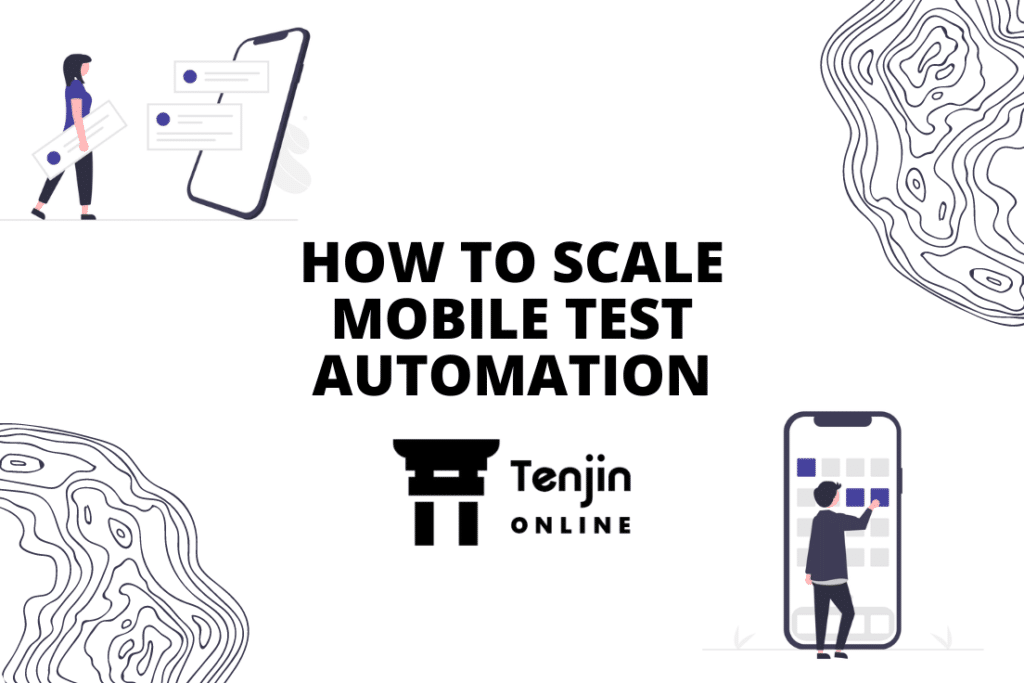
In today’s digital world, everyone wants access to latest technologies for the greater convenience they offer. When it comes to the device of choice, it is the mobile phone for most people as it helps with a wide range of day-to-day activities involving, paying bills, booking movie tickets, ordering food, planning the daily schedule, clicking unlimited photos, and the list goes on. Though the main idea of the mobile phones was to offer portable communication option to connect with people on the go, the mobile apps have created a much wider possibility than being a mere communication device. Hence, companies are making hefty investments in mobile apps to sustain and succeed in the market.
Mobile phone apps make businesses accessible to users with an amazing range of apps supporting our daily activities; hence, it is important to have them working flawlessly to avoid any kind of inconvenience. A thorough testing process should be carried out to check for even the smallest of error in the software and fix them before it is released in the market. App testing is usually performed to check the mobile performance, functionality, user interface design, stability, scalability, security, and every other aspect involved to ensure a seamlessly working app.
The online space is becoming increasingly democratic, with people sharing their likes or dislikes of everything known through reviews. Multiple bad reviews at an early stage could lead to new users staying away from the app, it becomes difficult to get them back even with constant efforts of updates for improvement. This makes mobile app testing a vital part in the development process.
The mobile app market is massive and immensely growing through the COVID-19 pandemic times. The huge market is subject to intense competition; for one to surpass their competitors and succeed in the business, it is important to deliver an excellently working app, which can be achieved only by a strong testing process. Let us take a look at the various processes involved in testing, from mobile performance testing to mobile usability testing, and understand the role of advanced integration like AI/ML in testing mobile apps.
Mobile App Testing Processes: Everything you should know
Mobile app development industry is the most promising sector and the mobile apps integrated with advanced technology is the future. App testing is a complex aspect that involves many processes for you to choose, and execute all or some based on your requirements and objectives. The app testing involves several stages namely strategic planning, framework selection, platform consideration, functional testing, performance testing, accessibility testing, UX testing, compatibility testing, and security testing. Among all the aspects of testing, the functional, performance, UX testing are considered to be the critical ones as they cover the other aspects too. The process is performed by AI / ML in testing or use of test automation tools.
Processes like mobile functional testing, mobile performance testing, UI testing, and UX testing are important for identifying and rectifying bugs while ensuring a smooth user experience. While processes such as security, usability, compatibility, and recoverability testing are more important for specific apps and significantly enhance user experience.
Significance of functional, performance, and UX testing
Functional testing
Functional testing of the mobile apps is carried out to test its functionality. The main focus of this testing is to ensure that the app works without any defect or error. Functionality testing is the umbrella term that involves acceptance testing (test the readiness), integration testing (integrations across platforms), and regression testing (verification of changes).
The functionality testing depends on various business factors such as the type of application, target audience, and the distribution channel. Here the type of application could be a gaming app, movies, banking or financial app, e-books, or social networking apps; target audience can be a business, educational centers, direct consumers, etc.; while the distribution channel refers to the play store these apps are distributed, most popular distribution channels are Google Play Store and Apple Store.
The functionality testing scenarios include a series of testing activities:
- The testing of installation and launching of the app
- Check if all mandatory fields are working
- Make sure that the app minimizes in case of an incoming call
- Allow user log-in and sign-up
- Allow sharing on the social networking sites like Twitter, Facebook, Instagram, etc.
- Verify that the app supports the payment gateway transactions such as Google Pay, Mastercard, Visa, etc.
- All the boxes and buttons work fine
- Push notifications are sent correctly
- Page scrolling function properly
- Appropriate error messages are sent
- Check that the app operates fine in case of system crash or device reboot
- The app supports all versions of mobile data such as 2G, 3G, or 4G
- In case of any change in the app or addition of a new feature, the app should perform a regression testing to check the working of the changes made
Performance testing
Performance testing is carried out to ensure that the app works smoothly without any interruption even during heavy load. Consider Netflix, it has billions of viewers across the global, during peak hours if the performance of the app is slow or app crashes due to the heavy load, this will affect the brand value and eventually losing the subscribers. Therefore, performance testing is a crucial testing process.
Scenarios involved in performance testing include:
- Check if the app performs efficiently even under higher load conditions
- Identify structural and operational challenges of the app
- Test if the response time is as per the estimation
- The app has fine integration with other in-built applications like camera, maps, etc.
- To check the app connectivity with the network
- Check if the app performs will when network is changed from 2G/3G/4G to Wi-Fi, or other way round
- To ensure that the battery life can support the app under different loads
- Test automation is suitable in multidisciplinary scenarios
UX testing
Usability testing is performed to ensure the app has a simple-to-use, engaging interface that offers complete satisfaction to the end-users.
Scenarios involved in UX testing include:
- Ensure easy, attractive, and self-explanatory designs
- Buttons are neither too big nor small, and located conveniently
- Check if buttons/ Icons are consistent with style, size, and location
- Check for simple and easy navigation
- App is in sync with the keyboards and easily operatable
- The other background menus are not dominant
- Check if zoom in and out works as expected
- The end-user can easily operate the app without any manual
Along with this, security testing to comply with the security and privacy laws of different regions, compatibility testing to ensure the app runs smoothly on all possible devices without any loss in functionality, and recoverability testing to keep from data loss due to unexpected crashes or interruptions, are all important parts of improving the functionality of your app.
Is automation testing suitable in multi-disciplinary scenarios?
Software development is a multidisciplinary field which involves several other disciplines like data management, integrated system management, secure supplier collaboration, development lifecycle management, electronics, software, mechanical collaboration aspects, and much more. To support the multidisciplinary scenario of the software development process, a flexible, agile, and advanced testing process is required.
The demand for multidisciplinary test automation tools is on the rise as they are flexible to accommodate the significant challenges created in the software development life cycle. Such automated systems work at various disciplines to improve efficiency and productive, while ensuring the top quality of the final software. In case, the automation tools are inefficient of testing at different disciplinary levels, it may lead to error or faults in the final product, thereby, affecting the brand value.
The Need for Constant Learning
Software QA has witnessed a rapid evolution in the recent past by moving from tedious manual testing to automation tool, and finally seeing advanced integration like AL and ML. To keep up with this ever-evolving environment, testers also need to keep evolving in terms of their skills. Upskilling and reskilling, thus, becomes an important part of the mobile app tester’s responsibilities. Testers need to understand the entire gamut of processes so that they can remain relevant.
Already, the use of AI/ML in testing has made the process faster through the use of automation. Such developments in automation will only increase, which means testers also have to keep an eye on skills that could be required in the future.
Why TenjinOnline for mobile app testing?
Tenjin Online is a powerful SaaS-based, mobile testing automation platform for Android and iOS apps. This simple, codeless, and self-serviced platform helps to perform automation mobile testing to ensure that the app is visually appealing, offers interactive interface, easy to navigate, and performs flawlessly without compromising on performance, security, and safety of the mobile device. TenjinOnline is capable of handling wide range of app testing that involves UI / UX, API and performance of your mobile applications.



Leave a Reply
You must be logged in to post a comment.